A key witness in an investigation into suspected illegal political funding in France from bribes paid in the sale of French submarines to Pakistan has confirmed the existence of a blackmail attempt against the French state, including against Nicolas Sarkozy, over allegedly compromising information linked to the kickbacks.
Investigating magistrate Renaud Van Ruymbeke, leading one of two highly sensitive judicial enquiries into the so-called Karachi affair, was told of the blackmail plot during questioning this month of Gérard-Philippe Menayas, who was financial and administrative director at naval defence contractor DCN (Direction des constructions navales) between 1992 and 2008.
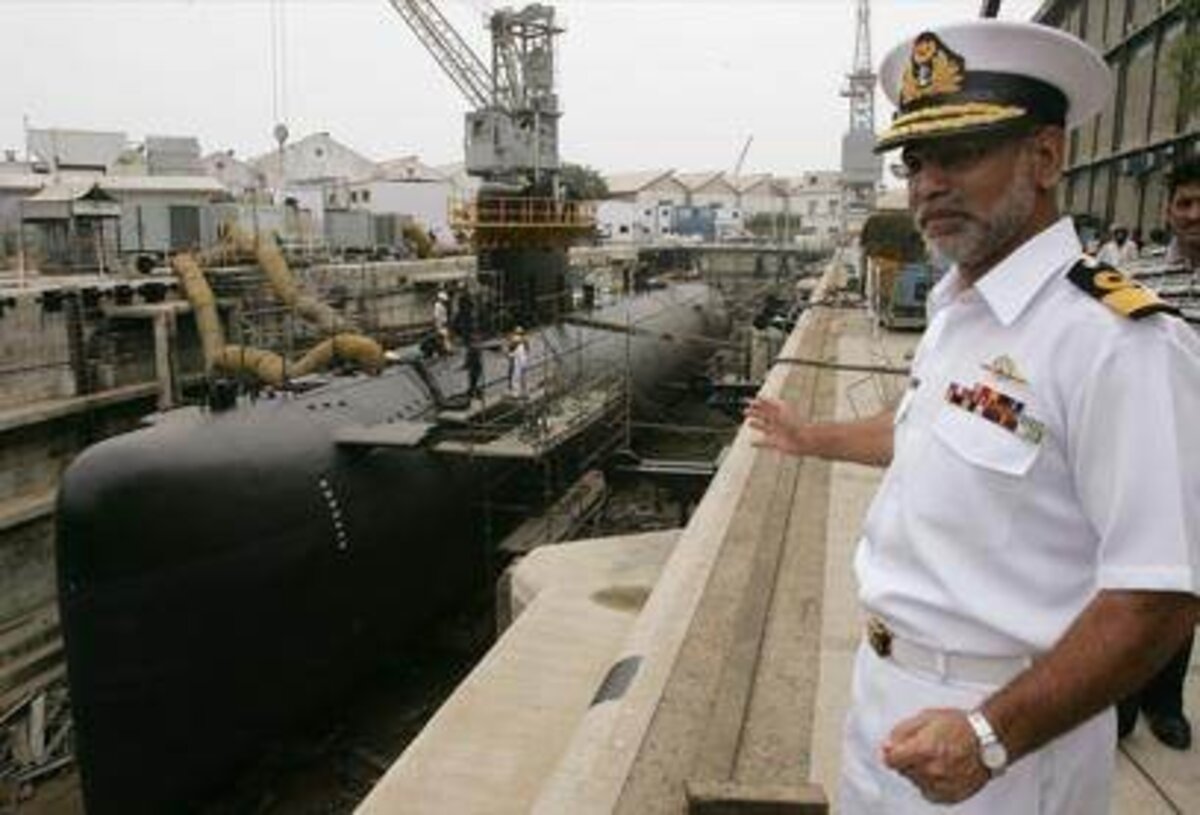
Menayas also gave investigating magistrate Renaud Van Ruymbeke details of the 'shadow', or shell companies apparently used to channel multimillion euro 'kickbacks' paid out in the 1994 deal.
The Cherbourg shipyard base of the state-run DCN (now called the DCNS), was responsible for overseeing the building in Karachi of three Agosta submarines sold by France in a deal concluded in 1994. It was during the construction of the Agostas, on May 8th, 2002, that 11 DCN engineers were killed in a bomb attack on their minibus outside their Karachi hotel.
The ongoing French investigation into their murders1 has dismissed theories of a terrorist attack and is concentrating on mounting evidence suggesting that it was a reprisal for the non-payment of vast 'commissions' promised to senior local intermediaries to secure the sale of the submarines. Evidence suggests they were halted by former French President Jacques Chirac after it was discovered that some of the payments were re-routed back to France.
It is this particular aspect of the case that the investigation by Judge Van Ruymbeke2 is specifically concerned with; so-called 'retro-commissions', said to have been used to fund then-prime minister Edouard Balladur's failed bid to run against Chirac for office of president in 1995. At the time, Nicolas Sarkozy was Balladur's budget minister and election campaign spokesman. Both men have dismissed the claims.
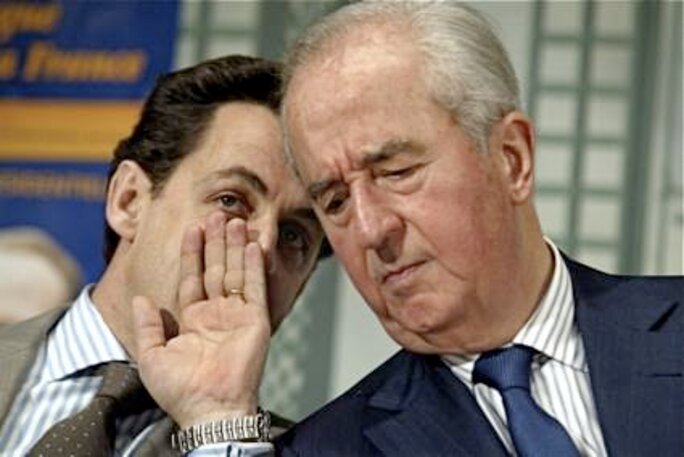
Last week Van Ruymbeke heard important evidence from Charles Millon, who was Chirac's defence minister from 1995 to 1998, and who confirmed the existence of the retro-commissions.
It was a few days earlier, on November 9th, that the judge also heard the key testimony of senior DCN director Menayas, a qualified mathematician and specialist in the movement of funds.
Menayas, 63, spoke of a "blackmail" attempt by the former bosses of a shell company called Heine - said to be involved in handling some of the commission payments - against senior figures in the French state, including Nicolas Sarkozy, just months before the 2007 presidential elections, which Sarkozy went on to win.
-------------------------
1: The investigation into the murders of the 11 engineers is led by Judge Marc Trévidic. Under French law, the murder of a French national abroad can become the subject of a French investigation and eventually to the charging and trial of a suspect.
2: Renaud Van Ruymbeke, 58, is specialised in financial crime and has led several, high-profile investigations into political corruption involving figures and parties from both the Left and Right. He also led the successful second investigation into the 1996 rape and murder in Brittany of 13 year-old British girl Caroline Dickinson and was latterly one of two magistrates in charge of the pre-trial investigations into Société Générale 'rogue' trader Jérôme Kerviel.
'Physically threatened'
Heine, a Luxembourg-based company, was run by a man called Jean-Marie Boivin, a former French Air Force translator who had became privy to French arms industry secrets. This incident became what several figures in the case have called the "Boivin blackmail".
The alleged blackmail dates back to 2004 when the DCN decided to cut its ties with the former head of Heine in return for compensation of 610,200 euros. The settlement offer was apparently below what Boivin and his partners considered acceptable.
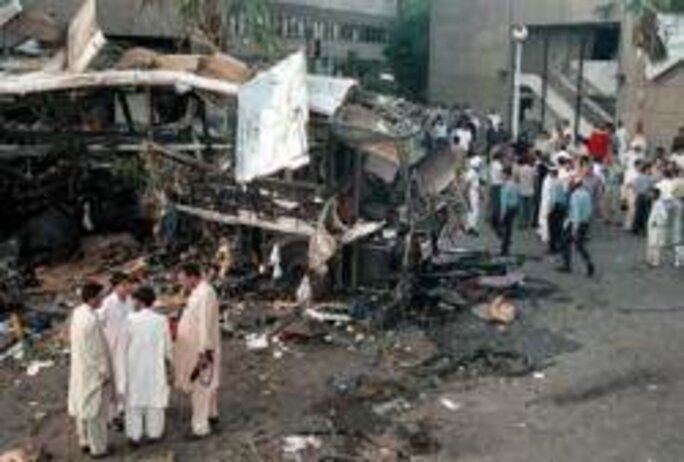
Menayas told the judge: "From 2004 Monsieur Boivin demanded sums that grew in size over time and sent letters first to the business [DCN], then to senior figures in the French state, even to Monsieur Sarkozy himself before he was president."
By 2006, said Menayas, Boivin's demands had increased to eight million euros, and the former bosses at Heine threatened that, if the money was not paid, they might make "revelations on the retros [retro-commissions]", said Menayas.
In several of the letters by Boivin or his associates sent to President Chirac, to then-defence minister Michèle Alliot-Marie (now foreign affairs minister), and Sarkozy, who was then interior minister, there was a recurrent phrase: "I also draw your attention to the important status of those to whom the sums were paid."
Menayas said Jean-Marie Boivin had also informed Nicolas Sarkozy's law firm partner Arnaud Claude of his demands. "M. Arnaud Claude, law partner of the [election] candidate Monsieur Sarkozy, is my cousin by marriage," Menayas told the judge. "I only informed him after he himself called me to say that he had received an unexpected visit from Monsieur Boivin and that he had had to send him on his way."
The former DCN official also referred to another event linked to the alleged blackmail attempt. On October 26th, 2006, Jean-Marie Boivin received a visit in Luxembourg from two former agents of the DGSE, the French foreign intelligence service, Patrick Vaugien and Thierry Lohro, who were then working in the private sector. Hired by the DCN, they had been tasked with checking the strength of Jean-Marie Boivin's threats, to prevent the affair becoming public.
The 2007 presidential election - in which Nicolas Sarkozy, who finally won, was the UMP candidate - was just months away. No one in the upper echelons of the state would have been keen to see the secrets of an arms deal made public.
According to Gérard-Philippe Menayas, who kept a written record of all their meetings at the time, Boivin said he was physically threatened, and that the visit was ordered by Nicolas Sarkozy. "I made a note that they had been authorized by NS - that's to say Nicolas Sarkozy - because Monsieur Boivin told me that it was presented as such," Menayas told the judge.
Questioning Menayas on November 9th, Judge Van Ruymbeke asked: "Was Monsieur Boivin afraid?"
Menayas replied: "Monsieur Boivin is a very timid person and I felt he was shaken."
According to the former DCN finance director Jean-Marie Boivin finally won his claim in January, 2009 thanks to an agreement signed on the Isle of Man between Heine, the DCN and the French state. "I think that Monsieur Boivin's threats were taken seriously," Menayas told the judge.
Isle of Man company
The judge asked Menayas: "If Monsieur Boivin did win his claim, was that not going to be in exchange for his silence over what he knew about the identity of agents, their accounts and the final beneficiaries of the commissions?"
Menayas replied: "The deal, if it came off, should indeed have ensured the confidentiality of this information."
The former DCN finance director also gave evidence about how the commissions system worked on arms deals involving the company. "The total volume of the commissions was approved, contract by contract, by the two ministers of budget and defence," he said. At the time of the Agosta submarine deal, Sarkozy was budget minister and François Léotard was in charge of defence.
"Then each year, after payment of the commissions, I went to the tax legislation department at the ministry of the economy and finance [bureau CF3, dealing with international tax affairs] where I handed in declarations DASII Bis1 on which I gave oral explanations of the destination of these commissions," Mayenas told the judge.
Mayenas, who gave evidence as a temoin assisté 2, went on to explain the complex financial system that had been put in place by DCN to handle the Agosta commissions. On one side - upstream in financial parlance - it involved Luxemburg-based Heine while on the 'downstream' side was a shell company based on the Isle of Man. In a memo he gave to judicial authorities in 2008 these financial structures were also described as 'circuit-breakers'.
The following are two extracts from Menayas's April 2008 memo which refers to the two shell companies involved in handling the commissions (in French only):


According to a summary report by the Luxembourg police in January, 2010 the creation of Heine at the end of 1994 was overseen and approved by Nicolas Sarkozy 'directly' from his post as budget minister. The police there also noted - as already revealed by Mediapart - that in 1995 "part of the funds that went via Luxembourg came back into France to finance French political campaigns."
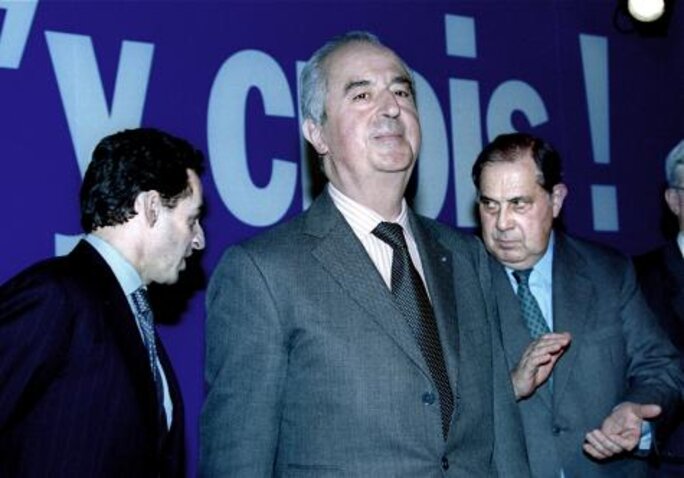
The Luxembourg police report also noted: "We underline the fact that Edouard Balladur was a candidate opposing Jacques Chirac in the 1995 presidential election and was supported by some of the RPR including Monsieur Nicolas Sarkozy and Charles Pasqua."
The other shell company mentioned by Menayas in his evidence was the Isle of Man-based Formoyle, a firm that was used temporarily by one of the men said to be a key intermediary in the commission payments, Ziad Takieddine and by the company he used at the time called Mercor. According to the Luxembourg police Formoyle was credited with 96,462,000 French francs (about 14.7 million euros) in 1995.
The judge had meanwhile discovered a written note from Boivin to his accountant Yves Schmidt which says: "Yves, I made a transaction end of 1994/beginning of 1995 to a Lichtenstein account belonging to VP Bank." There is no date on the note.
-------------------------
1: A tax form dealing with the declaration of commissions and other forms of payments.
2: An 'assisted witness' - he or she has the right to have a lawyer present. They are a witness closely connected with the facts of the case and who could potentially face prosecution themselves.
Clearstream
Van Ruymbeke asked Gérard-Philippe Menayas: "Do you remember if the company Mercor had an account at VP Bank?" Menayas replied: "That's what Monsieur Boivin told me at the time. Mercor is Monsieur Takieddine's company. I knew about this Mercor account because of the exceptional nature of this operation."
In November 2009 another senior official at DCN, Emmanuel Aris had also informed the judicial authorities of the existence of a Lichtenstein account held by Takieddine's company and which is where, it has been alleged, the suspicious Agosta commissions ended up.
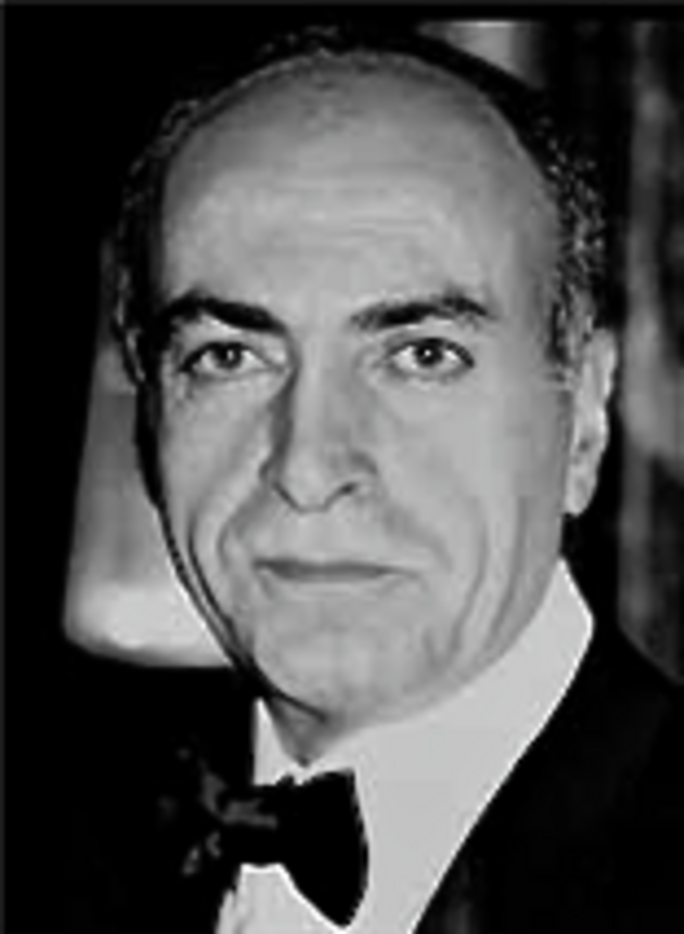
During Menayas's testimony, Judge Van Ruymbeke brought up the subject of an email sent on December 4th, 2006, by Jean-Marie Boivin to the former senior executive at BNP bank, Jacques-Philippe Marson. The latter had previously been one of the key figures at the Luxembourg clearing house Clearstream.
Asked about this email Menayas replied: "Monsieur Boivin spoke to me about Monsieur Marson who had been, before going to the BNP, director-general of Cedel [forerunner of Clearstream] and who in this capacity was in a position to know if certain payments from Heine to the level 2 platforms [in the Isle of Man] could have gone via Clearstream, in which case the confidentiality of the payments could have been compromised, that's why Monsieur Boivin had spoken to me about it." The witness added: "After checking, it became apparent, according to what Monsieur Boivin told me, that these payments had gone via the clearing house Clearstream."
At the time of this email, in December 2006, a number of senior French figures, including Nicolas Sarkozy, had been wrongly accused of having personal accounts at Clearstream in connection with another alleged corruption over the 1991 sale by France of six frigates to Taiwan.
-------------------------
English version: Michael Streeter


